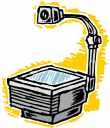


INSTRUCTOR:
Frank T.
McAndrew
Psychology Department Web
Page
Psychology
Department Writing Policy
Occupational Information Network (O*NET)
Industrial
Psychology
Resources for
Students (SIOP)
Textbook:
Industrial/Organizational
Psychology: An Applied Approach (8th Ed., 2016) by M.G. Aamodt;
ISBN: 978-1-305-11842-3
In addition to the text, there are a number of readings that can be
downloaded from this web page. These readings are listed at the end of
the syllabus.
Grading:
The format for the classes in this course will be
primarily lecture and discussion, with a number of in-class
activities. Your final grade will be the percentage of possible
points that you accumulate out of the total possible points on four
examinations and four class
projects. THE PSYCHOLOGY
DEPARTMENT WRITING POLICY WILL BE
APPLIED TO ALL WRITTEN PROJECTS. No make up tests will be given without
prior permission and a
very good excuse. The tests will be based on the textbook, the
outside readings, and class lectures. The last test will be
given during final examination week, but it is not a comprehensive
final exam.
(A =
93-100%)
(A- = 90-92%)
(B+ = 88-89%)
(B = 83-87%)
(B-=80-82%)
(C+=78-79%)
(C = 73-77%)
(D+=68-69%)
(D = 63-67%)
(D-=60-62%)
(F = anything < 60%)
Learning
Goals:
Your learning will be assessed by the quality of the written work that
you hand in and your performance on a series of three
examinations. Every course that you take is designed to
help you acquire knowledge and skills. The departmental learning
goals & competencies assessed in this course include the following:
1) Effectively and ethically apply the scientific method to studying
the mind, the brain,
and behavior.
2) Understand the basic theoretical approaches and classic empirical
findings of
psychology.
3) Effectively communicate with clear, grammatically-correct writing.
Goal #1 will be assessed via the job analysis project
Goal # 2 listed above will be assessed via the tests & quizzes.
Goal# 3 will be assessed via all of the projects in the class
TOPIC
READINGS
Introduction to Industrial Psychology & its Research Methods Chapter 1
Holland's Occupational Preference Inventory (Project #1)
Career Choice and Career Development Outside Readings #1 & 2
Job Analysis Chapter 2
Conducting a Job Analysis (Project #2)
Legal Issues in Employee
Selection
Chapter 3
TEST #1 (Wednesday, January 22) - Chapters 1, 2, & 3; Outside Readings #1, 2
Employee Recruiting & Selection Chapters 4, 5, 6; Outside Readings #3, 4, 5, 6
TEST #2 (Friday, February 7) - Chapters 4, 5, 6; Outside Readings #3, 4, 5, 6
Performance Evaluation Chapter 7; Outside Readings #7 & 8
Performance
Evaluation Criteria (Project #3)
Designing and Evaluating Training Programs Chapter 8
The Physical Design of Workspaces pp. 550-557; Outside Readings #9, 10, & 11
TEST #3
(Friday, February 21) - Chapters 7 & 8;
Outside Readings #7, 8, 9, 10, 11
The Work Environment: Health,
Safety, & Job Stress
Chapter 15;
Outside Readings #12, 13, 14, 15, & 16
Employee
Motivation
pp.
524-530; Chapter 9; Outside
Readings #17, 18, 19
Understanding
What Motivates You (Project #4)
TEST
#4 (During Scheduled Final Exam Time) - Chapters 9 & 15;
Outside Readings #12, 13, 14, 15, 16, 17, 18, 19
This
term, you
will engage in a wide variety of in-class activities designed to make
you more familiar with the concepts you are studying in the text. There
will be four projects that will count toward your final grade.
Three of these assignments will result in a brief written paper (a few
pages), and one is a project that involves “field
work” and a somewhat longer paper. The details of these
assignments will be presented to you in class, but a general
description of each is listed below.
Project #1 - Assessing your
Vocational Interests: Holland's
Vocational Preference Inventory (15 points)
Dr.
John L. Holland has created a very influential instrument for helping
individuals to explore what occupations might be good for them to
pursue. His instrument is known as The Vocational Preference Inventory (VPI).
In your first class project, you will be doing a self-assessment of
your occupational interests by using a shortened version of Holland's
VPI, something he calls The
Self-Directed Search.
After analyzing your vocational interests, you will write a reflective
essay in which you discuss your reactions to the results of your
self-directed search.
Project #2 - Job
Analysis
(20 points)
A job analysis identifies the important aspects of a
job that distinguish it from other jobs. The job analyst must
describe in specific terms the nature of the tasks performed by workers
on the job and the degree to which an employee is involved with data,
people, and things. Job analysis is a necessary first step in
creating effective selection, training, and performance appraisal
programs.
After reading the chapter on job analysis in the
textbook, you will plan and conduct a job analysis of a real job. You
must choose an approach to job analysis from
among the many that you have learned about in this course. You
will describe the procedures you used to collect data and explain why
these were the most appropriate ones to use for your
analysis. Be sure to select a job that you can obtain
information about through observation and interviews with job holders
or others familiar with the job. Once you have determined what
the job involves, be sure to write a complete and
accurate job description for the job that you have analyzed.
The results of your job analysis will begin with a
brief explanation of what job analysis is and why it is necessary for
our company. Go to the Occupational Information Network (O*NET)
at http://www.occupationalinfo.org/onet/. Be sure to include the
O*NET code for the job that you have chosen.
Project #3 - The Problem of
Criteria in Performance Evaluation (10 Points)
It is
more difficult than it might first appear to
develop valid criteria for evaluating the performance of
employees. Your assignment in this project is to develop criteria
for evaluating the effectiveness of sales representatives for a major
toy company. The sales reps are responsible for establishing and
servicing accounts with retailers who will carry the company's toys on
its shelves. The job entails getting the retailers to purchase
toys from the company for sale to the public. The sales reps are
responsible for finding new clients as well as for keeping the old ones
satisfied. The sales reps are assigned to territories by the
company, with the more senior employees getting the choice of the most
desirable territories. Territories can differ greatly in terms of
such things as geographic area covered, population base, and average
number and size of retail stores in the territory.
Your
assignment will be evaluated according to how
well you get around the criteria problems we have discussed, such as
contamination and the problem of using "hard" vs. "soft"
criteria. In your proposal, be very specific about exactly what
measurements would be used, when they will be taken, how often they
will be taken, and so on. Be sure to defend your decision.
The length of your memo should be no more than 2 or 3 pages.
Project #4 – Understanding
What
Motivates you (10 points)
There are many different incentives to get employees to work
hard. Some of these incentives are intrinsic motivators, which
are qualities of the work itself that make work tasks absorbing,
enjoyable, and satisfying. Other incentives are extrinsic in
nature, in that they are outcomes of the work such as money and status
that enable an individual to acquire other things that are important to
him or her. In this project, you will be presented with a long
list of possible motivators. From this, you will select a shorter
list of things that you think will be most important to you on the job
that you get after college. You will then do an analysis of this
selected list and write a reflective essay about the types of work
incentives are most relevant to you.
I
have
put copies of the Powerpoint slides that I used in class on the
web. To see copies of the PPT slides that were
used in the lectures for this course, click on the picture of the
overhead projector.

